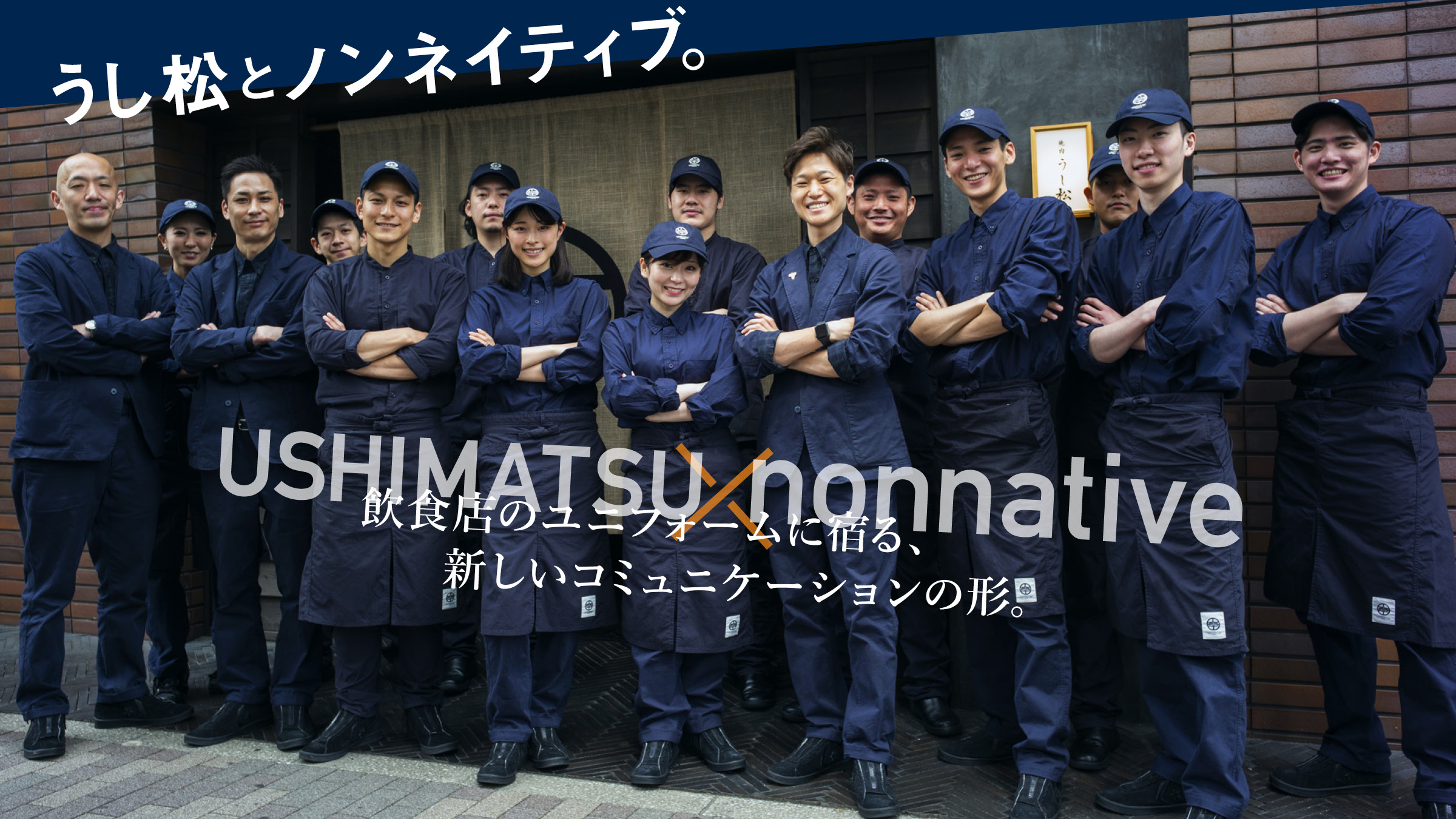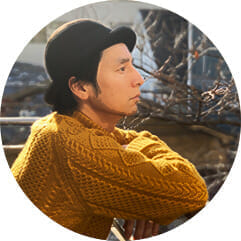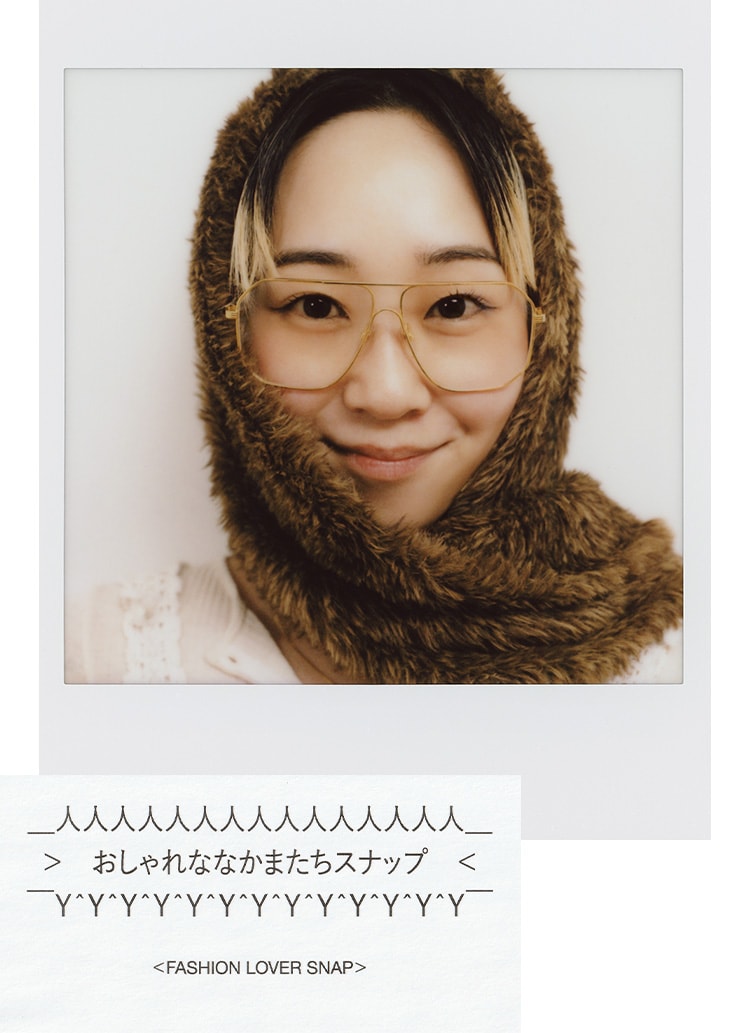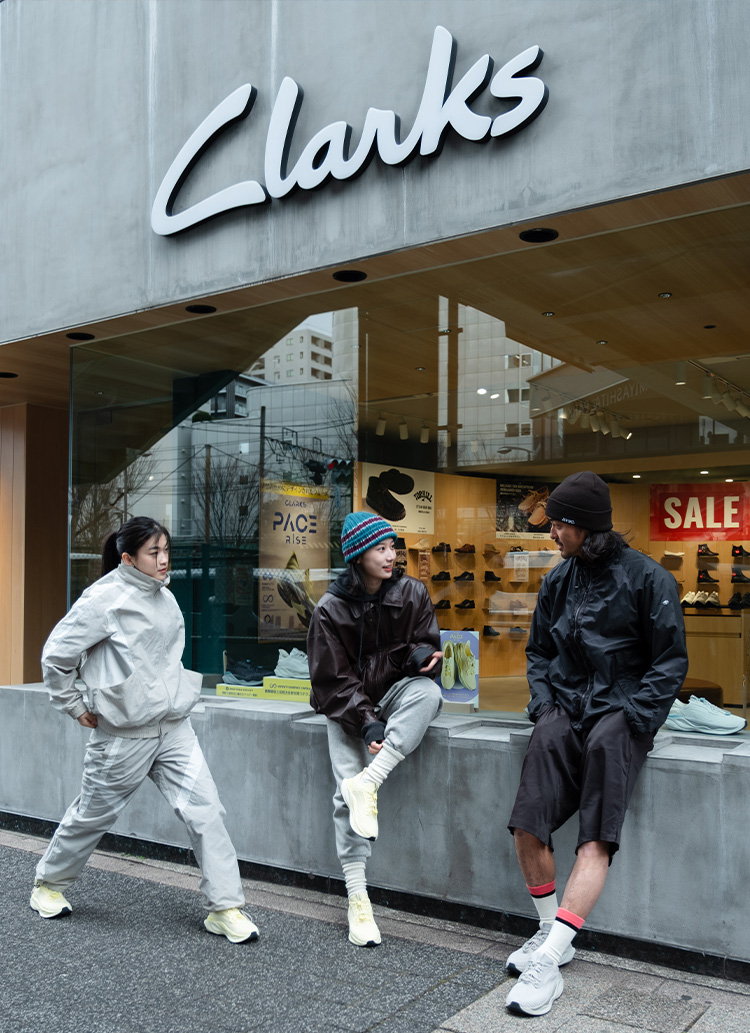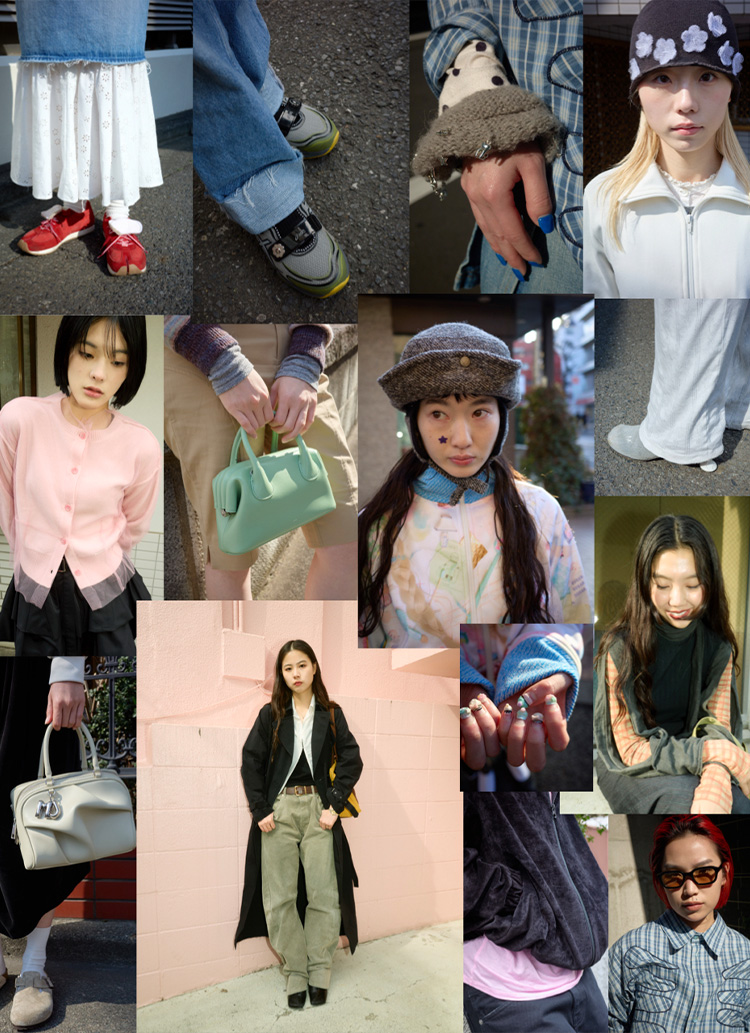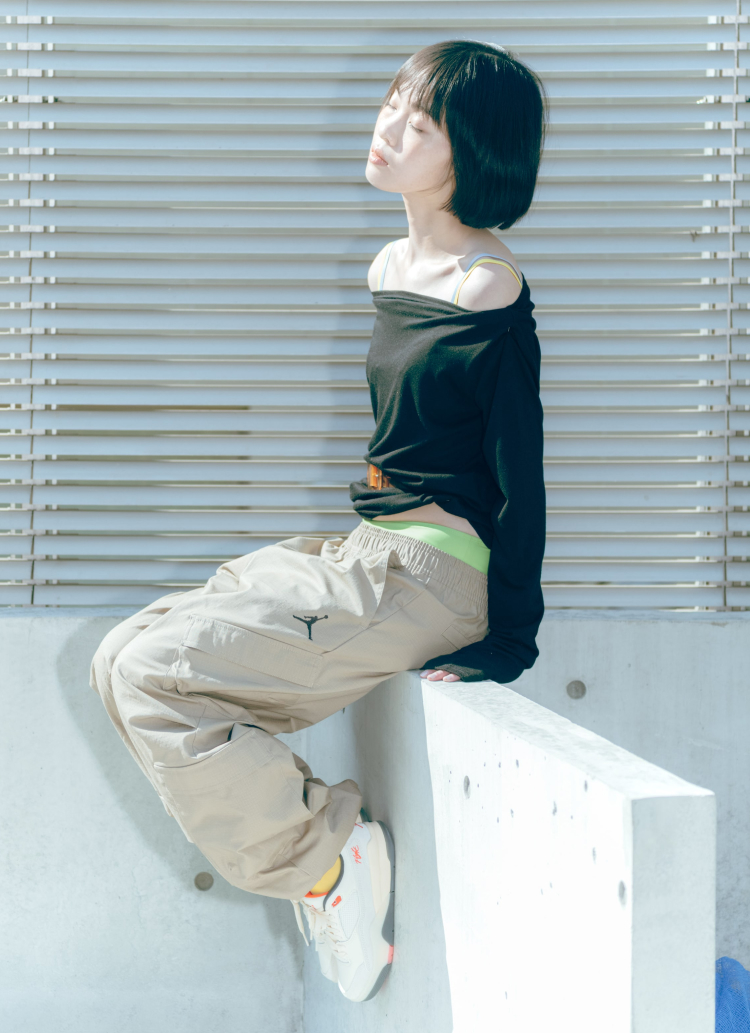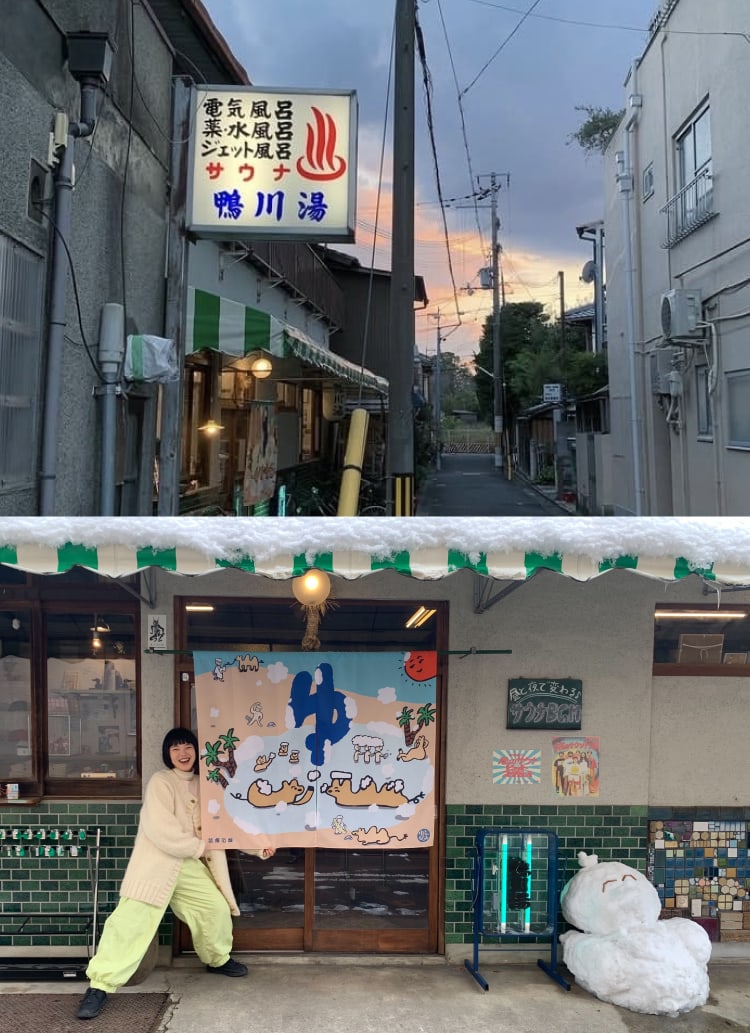. let people taste more than just the flavor.
Did you go to the store right after it opened?
Fujii: No, at first everyone around me was going there, so I gave it some time. I wanted to go when it was normal, not when it was flurry and crowded.
How did you feel when you actually went there?
Fujii: Of course it's delicious, and also the staff is young, which I thought was new for a yakiniku restaurant. I thought it was new for a yakiniku restaurant, including the interior design. However, I also thought that the youthfulness was reflected in the uniforms.
What do you mean?
Fujii: It's more like I feel like I'm being made to wear it. If it is a barbecue restaurant with good meat, there are many others, aren't there? We, the paying customers, are no longer satisfied with taste alone. Service alone is not enough, and the overall atmosphere is important.

. Mr. Fujii makes some minor tweaks before taking the group photo.
long vowel mark (usually only used in katakana) This coverageBut you said.
Fujii: On the other hand, the part I liked about "Ushimatsu" was that the flow of the course was very DJ-like. When the customers are talking, they are very precise about what to serve and at what time to get the crowd going. Some restaurants are a mess about that kind of thing. . like, all the menu items should be aggeared.
I see. I see.
Kurita: Since we offer a basic course menu, we spent a great deal of time deciding on the structure of the menu. It is true that if everything on the menu is 120% of what we offer, people will get bored with the menu. We also had to decide what to put in between the salt and the sauce. . Anyway, we went through a lot of trial and error.

Fujii: . I guess it changes with the seasons. Also, I think that a yakiniku restaurant is like a place where people go to enjoy an extraordinary experience. Most people come to a yakiniku restaurant because they want to feel better. In that sense, I think the reason why "Ushimatsu" is so attentive to various aspects other than meat is because Mr. Kurita used to work in the clothing industry. I don't think he thinks it is good enough just to serve meat.
All of them are important.
Fujii: Yes . . I think it is the same with the way the meat is placed and arranged. I think cooking is all about styling. Especially the presentation. In the case of yakiniku, the presentation of the meat that has not been grilled is the most important part. I think you are very stoic about that. The cross-section of the meat, for example. It's like how you take a close-up of faded jeans to show the faded part, and I think he knows where it looks good.


. It's a matter of aesthetics, isn't it?
Fujii: I think being in the fashion business makes you more sensitive to such things. It seems that there are many customers from the fashion industry at Ushimatsu, and that is very important, isn't it?


